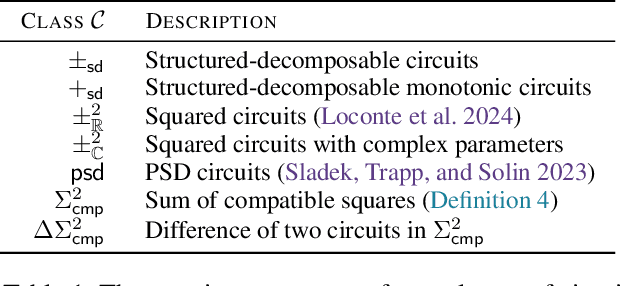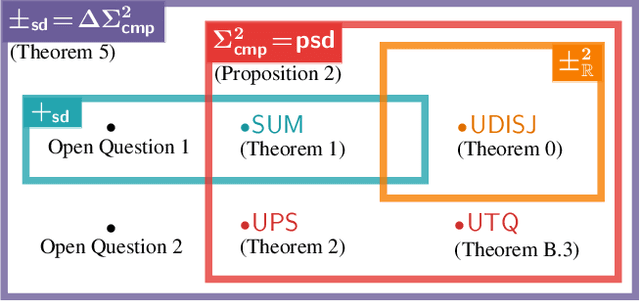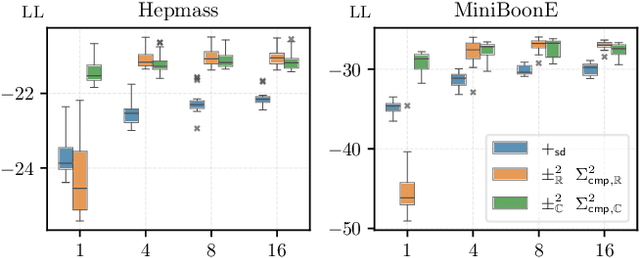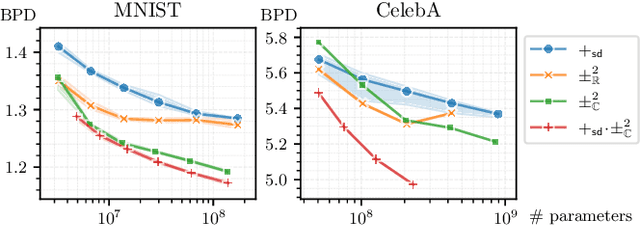Sum of Squares Circuits
Paper and Code
Aug 21, 2024



Designing expressive generative models that support exact and efficient inference is a core question in probabilistic ML. Probabilistic circuits (PCs) offer a framework where this tractability-vs-expressiveness trade-off can be analyzed theoretically. Recently, squared PCs encoding subtractive mixtures via negative parameters have emerged as tractable models that can be exponentially more expressive than monotonic PCs, i.e., PCs with positive parameters only. In this paper, we provide a more precise theoretical characterization of the expressiveness relationships among these models. First, we prove that squared PCs can be less expressive than monotonic ones. Second, we formalize a novel class of PCs -- sum of squares PCs -- that can be exponentially more expressive than both squared and monotonic PCs. Around sum of squares PCs, we build an expressiveness hierarchy that allows us to precisely unify and separate different tractable model classes such as Born Machines and PSD models, and other recently introduced tractable probabilistic models by using complex parameters. Finally, we empirically show the effectiveness of sum of squares circuits in performing distribution estimation.
 Add to Chrome
Add to Chrome Add to Firefox
Add to Firefox Add to Edge
Add to Edge